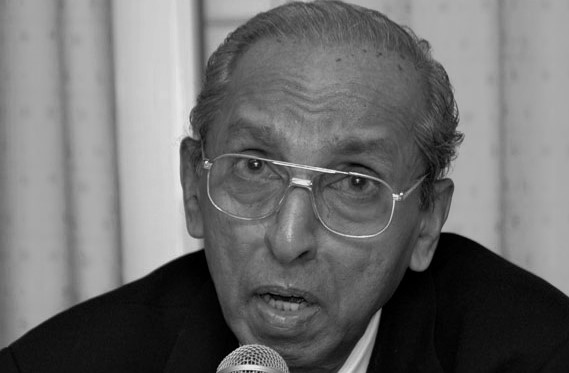by Easwaran Rutnam.
The change in the political environment in Sri Lanka recently saw the head of a leading Tamil diaspora group visiting the country, his first visit since a ban on him was lifted.
The President of the Global Tamil Forum (GTF) Father S. J. Emmanuel told The Sunday Leader there are some ‘good changes’ to be seen in the country, yet a lot more needs to be done.
He also called on the Tamil diaspora to not just visit Sri Lanka for a holiday, but seriously contribute to the rebuilding of the country.
Q: How did you feel, returning to Sri Lanka after so many years?
A: My last visit was in Feb 2005 soon after the Tsunami to distribute help to all coastal areas from Point Pedro to Kalmunai. Since I scan all newspapers of Colombo daily, I was not surprised to see some good changes, such as freedom of movement and of views. After the long conflict and war, a lot needs to be done. I think the present government has a unique chance to build up all that was lost.
Q: Do you see and feel real change on the ground?
A: I have not visited the South, but the North devastated by war has some form of peace mixed with fears, frustrations and uncertainty. Fears, because of the large military still withholding people’s lands and limiting livelihoods of people; frustrations are seen through prolonged protests against promises unfulfilled with respect to missing persons and incarcerations of innocents without trial.
Q: What led you to visit Si Lanka when some others in the Tamil diaspora still feel it’s not safe?
A: My long self-exile was caused by the then-media misunderstanding my role as a Catholic priest giving voice on behalf of my victimized people. When churches and schools were bombed and innocent people were dying in large numbers, as a Christian priest and vicar general, I spoke out against the bombings. This was seen as supportive of the LTTE which was fighting a war against the state forces. But the South and all media saw it as supporting terrorism, and abused me with all lies.
Now there is a change of government for the better. The former government had even a web page in which I was falsely portrayed as a terrorist and an enemy of Sri Lanka. But the new government, supported to power by us too, invited me to come back and help Sri Lanka towards recovery and reconciliation. It has delisted some in the diaspora but not all. I wish soon others too be delisted to enable the diaspora in rebuilding Sri Lanka as an island of peaceful coexistence.
Q: Could you tell us who you met while in Sri Lanka and what key message you conveyed to them?
A: I met government leaders, some High Commissioners, Church leaders and some civil society leaders who I thought will help towards reconciliation and peace. In all meetings I asked their help not to lose this unique chance towards a solution of the national conflict and pave the way for a peaceful coexistence of all people.
Q: There is a concern among some groups in the North that the process to draft a new Constitution has ignored the aspirations of the Tamils. What is your understanding of the situation?
A: The drafting of a new Constitution undertaken by the present unity-government is not an easy one-party majority achievement, as happened earlier drafting of constitutions. Here the new government is trying to get the consensus of all the parties in parliament as well as all sections of the people.
The interim draft is the first step towards achieving the goals of a peaceful coexistence of all peoples reconciled with one another and progressing in all aspects of life. It has some good points and does not contain all aspirations of the Tamil people as well as of the Sinhala people. Hence open discussion to move forward towards a win-win solution must be aimed. Those who view it selfishly only on one side are disappointed, but we have to understand the difficulties on both sides, without losing hope make the best out of these proposals.
Q: Can this government be trusted to deliver justice for alleged war crimes?
A: Justice for alleged war crimes! Yes we too have worked hard to get the whole past examined on the basis of truth, justice, accountability, transitional justice towards reconciliation. Although the SLG has finally cosponsored and agreed to the UNHRC resolution, it is weak in explaining to the people and making it acceptable to them. Internationally the SLG is able to hold a good face, but on the ground progress is very slow and minimal. More has to be done to enlighten and win over the extremist forces in the south.
Q: This government is still protecting former military officers who were involved in the war and have been accused of committing war crimes. Should there be pressure to investigate those officers as well or should the past be in the past?
A: Although the President as head of the state forces promises protecting them as past heroes, but such blanket cover of impunity for all, including the alleged criminals, will not do good for the county. The new Army commander seems to have a different and better idea of justice for the alleged criminals
Q: Following your visit what role do you see for the Tamil diaspora in Sri Lanka?
A: The Tamil diaspora must not only visit Sri Lanka for a holiday, but seriously contribute to the rebuilding of the country, especially the marginalized victims of the North and East. Instead of building only their old schools or temples/churches, they should help the marginalized poor and invest in projects to offer jobs for our youth.
– -Colombogazette
